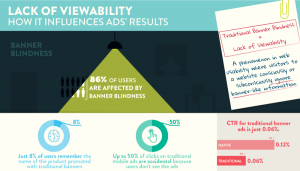
Do you buy into the perception that Millennial employees are entitled, needy and lazy? If so, then you’re the one who might just need a little attitude adjustment.
Far from being divas, a new report says that Millennials actually err on the other extreme, driving the rise of the “work martyr.”
Work martyrs try to make themselves irreplaceable by appearing to be completely dedicated, working long hours, limiting downtime, and not using vacation days. Work-life balance? Nice in theory but work martyrs believe they need to do everything possible to impress their boss, protect their jobs and advance their careers.
The report, titled “The Work Martyr’s Cautionary Tale: How the Millennial Experience Will Define America’s Vacation Culture,” found that of 5,600 US employees polled who work more than 35 hours a week, 29 percent can be classified as work martyrs. But among millennials, the percentage of work martyrs skyrockets to 43 percent.
“What we’ve found is it’s the exact counter to the popular cultural narrative that millennials are spoiled, entitled people,” said Katie Denis, senior director of the Washington-based organization, as reported by Joshua Rhett Miller for The New York Post. “They actually feel like they have to prove their worth and their worth is proven through long hours.”
Thirty-nine percent of people across all age groups believe it’s a good thing to be a work martyr. But that number rises significantly amongst millennials, where 48 percent think it’s a awesome if your boss sees you as a work martyr. However – and this part’s tricky – 86 percent of millennials say it’s bad if your family sees you as a work martyr.
This poses a huge quandary for Millennials, who we know also care deeply about having a sense of purpose with their jobs and working at companies that try to give back in meaningful ways. In fact, purpose is why they might have joined their company to begin with; one report showed that the third top consideration for Millennials applying for a job is the company’s involvement with causes, and more than 50% of Millennials accept a job based upon a company’s involvement with causes.
This report on work martyrdom holds much irony. Millennials flock to and thrive in corporate cultures that prioritize giving back and making the world a better place. But the report states that work martyrdom is actually “poisonous to company cultures,” and essentially advises martyrs to stop thinking of vacation days as the “v-word.”
You can’t blame Millennials for having dual personalities when it comes to work. As Denis points out in the Post, they graduated amidst a terrible economy and have come of age in an always-connected work environment – a perfect storm for martyrs. There’s also a sense in this hyper-competitive culture that becoming a billionaire like Mark Zuckerberg is possible if they only put in the hours.
As Denis puts it, “The workplace is no longer a physical space. It’s a state of mind.”
And that state of mind has competing agendas for Millennials – the desire to do well and the desire to do good. In the best of companies, these interests are complementary, not conflicting.
Millennials give differently than other generations, in ways that are more integrated with their lives. According to The Millennial Impact Report, a study by Achieve for the Case Foundation, Millennials bring their passions to work and want to feel inspired by the opportunities at their companies. “The idea isn’t to be recognized for doing good; rather, the point is to be able to do good and make a tangible difference through the workplace,” the report notes.
Why is this important for companies? Because millennial work martyrdom is also leading to short tenures at each job. Burnout could be one reason why the average time on the job for those between 20 and 24 years old is less than 16 months, and for those between 25 and 34 it’s three years. This job lifespan is about two years less than for older generations, according to the Bureau of Labor Statistics.
If CEOs don’t want to continually chase down new talent to replace the Millennial employees who ditched them for another company, they need to think about how to set the tone from the top. It’s up to bosses to avoid rewarding work martyrdom and make it clear that work-life balance is a healthy and desirable goal at their company. And one of the best ways to help employees see their jobs as more than just work is by weaving social purpose into their job descriptions and opportunities.
An ethos of community service gives back in many ways – from recruitment to engagement to retention. It replaces a zombie work martyr mentality with a more holistic, well-rounded and connected perspective that is always better for your business in the long run. Forget work martyrs; breed a culture of changemakers who feel energized, inspired and empowered to make a difference at your company by making a difference in the world.
Digital & Social Articles on Business 2 Community(43)
Report Post





